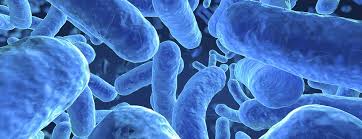Despite positive results, there is a long road ahead for Microbial-based treatment, and experts urge caution until clinical trials have been completed!
Researchers at the Baylor College of Medicine have successfully reversed social deficits associated with Autism Spectrum Disorder (ASD) in mice using a bacterial-based therapy. The unconventional approach has a widespread potential for the creation of noninvasive therapies for autism and has a lot of potential for other neurological conditions.
 The research uncovered that the administration of the bacteria species Lactobacillus reuteri could lead to specific changes in the brain which restored social behaviors in mice models with autism.
The research uncovered that the administration of the bacteria species Lactobacillus reuteri could lead to specific changes in the brain which restored social behaviors in mice models with autism.
We and others have previously shown that Lactobacillus reuteri increases oxytocin levels in the brain, but we didn’t know the channel of communication by which this microbe affects the brain. In this research, we determined that the vagus nerve and the oxytocin-dopamine reward system were both necessary for the social behaviors to be restored. When we cut the vagus nerve, the treatment with the bacteria had no effect. When we prevented the oxytocin to bind to its receptors in the specific brain area involved in social reward, the bacteria was not able to have an effect either. So L. reuteri needed both the vagus nerve and the oxytocin receptors to restore the behavior, said Martina Sgritta, one of the authors of the study.
While this is good news, it’s still a long way in the future, and there are a lot of clinical trials required before it could be rolled out to people.
The dream of this unconventional approach is that we would be using this or a similar microbial-based treatment. This particular bacterium, for instance, is considered safe in people and it was already given to infants to treat colic. There are no secondary effects and there is no toxicity. It is non-invasive and, perhaps, could someday just be added to yogurt—or taken in a pill form or, perhaps, with water. It is still extremely early to envision this, but if this were to be true, I think not only will we have to change the way we think about the disease, but also new treatments. Because you’re treating the brain through the gut, which, a few years ago, was sort of unthinkable. But now, it might become a reality, said Costa-Mattioli.





